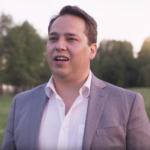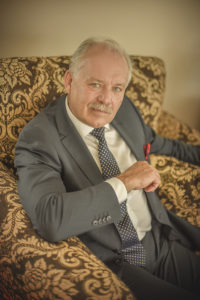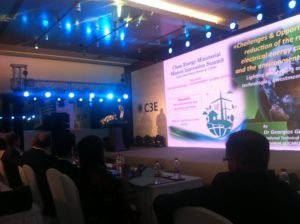George Kinigalakis(GK) was born in 1944 in Piraeus, Greece, and obtained his degree in Chemical Engineering from the Technical University of Athens in 1967. During his student years in Athens he made several visits to Sweden and he came in contact with the University of Lund and worked as a trainee on major paper industries in Sweden.
Since 1968, GK is a permanent resident of Sweden where during the first years he devoted to research studies in mathematics, theoretical physics and quantum chemistry at the University of Lund and University of Uppsala. As a young scientist from Greece where the environmental issues were low valued at that time, became GK deeply fascinated by the values prevailing in the Swedish society focusing on the human values, as they are represented by Humaniora in Uppsala and the respect to the environment.
GK made supplementary studies and conducted applied R&D in environmental science, industrial safety, waste treatment, material recycling, renewable energy, production of non-fossil fuels, etc and created an international network of experts participating also in various environmental activities for dissemination of knowledge in Sweden and internationally. Aiming to create opportunities to contribute in practice to environmental protection, decided GK in 1994, to found, together with Doc Anders Lindvall, Prof Ulf Lindh and Prof Olle Selinus, the R&D company Medimetal Ltd (MM) in Uppsala.
The clear objective of MM was to develop and introduce innovative methods for environmental protection and the main subject of the company has been research on the effects of heavy metals on humans and the environment including the pollution of sea and sediment under the overall scientific disciplines of Metal Biology and Medical Geology. The methods we have developed are about diagnostics, medical treatment and prevention of health impacts caused by occupational exposure and industrial activity, as well as environmental and climate impact.
In the field of industrial safety, GK has expert knowledge in risk assessment regarding occupational accidents and occupational diseases in industrial sectors, where major risks may occur, and large amounts of toxic substances are handled, such as dismantling and recycling of ships. GK has through Medimetal Ltd participated in two multinational EU programs, such as the EU FP6 “Shipdismantl” 2004-2008 and EU FP7 “DIVEST” 2008-2011, which have resulted at developing a model for sustainable recycling of ships.
Since environmental pollution issues are often directly related to waste management, has GK and his team devoted much of their applied research to innovative recycling methods, aimed at zero emission technologies, leading to disappearing of the landfills and eliminating of the waste incineration. The proposed applications and models are based on recycling methods using residues from the industry and shipping activities as well as municipality waste, MSW, for production of commercial products according to the principle of trach-to-cash.
Due of the alarming development of marine pollution and the scaring threat caused by ocean plastics, as it has been noted by international organizations recently, an important priority of GK and his colleagues is to develop a floating system for sampling and recycling the plastics that pollute the seas and convert them into commercial fuel implementing the innovative Swestep method.
GK is nowadays strongly committed to the global climate change problem by being member of various non-profit organizations such as Climate Action, CEEII, etc. GK along with the group of researchers who own and operate the Medimetal Ltd and CEEII are currently motivated and inspired to contribute to a long-term reduction of climate change, the housekeeping of natural resources and the overall reduction of using fossil fuels being in compliance with the EU directive on Circular Economy to create a non-fossil society.
 Victor has been working with Sustainability and Environmental technology since 2004. While at Kot Consulting he worked with transnational trade within the Recycled plastics Industry. Since then he has spent 14 years networking in Sweden, California, Texas and various places in Japan. With his network of Professors and developers, Victor has been directly instructed by the relevant professional within Water Treatment, Ship Recycling, Metal Recycling and Sustainable Hydrogen production. This mix of experts and technologies exist in a very collaborative atmosphere around Victor daily.
Victor has been working with Sustainability and Environmental technology since 2004. While at Kot Consulting he worked with transnational trade within the Recycled plastics Industry. Since then he has spent 14 years networking in Sweden, California, Texas and various places in Japan. With his network of Professors and developers, Victor has been directly instructed by the relevant professional within Water Treatment, Ship Recycling, Metal Recycling and Sustainable Hydrogen production. This mix of experts and technologies exist in a very collaborative atmosphere around Victor daily.


 For 20 years, Jonas Sokas worked as an educationalist at various higher education institutions, i.e. as a lecturer in Lithuanian State Institute of Physical Education, and in Lithuanian Agricultural Academy.
For 20 years, Jonas Sokas worked as an educationalist at various higher education institutions, i.e. as a lecturer in Lithuanian State Institute of Physical Education, and in Lithuanian Agricultural Academy.
